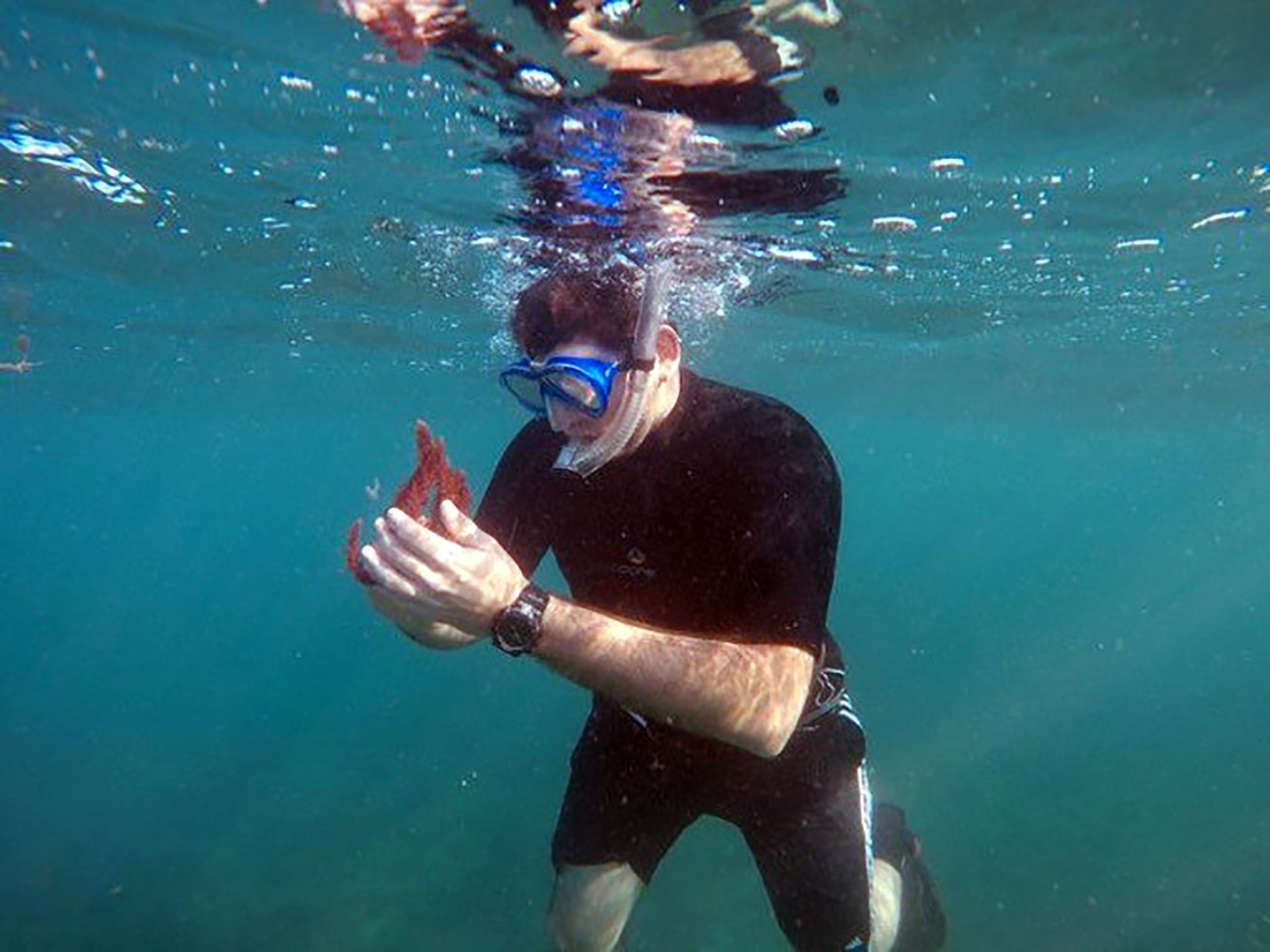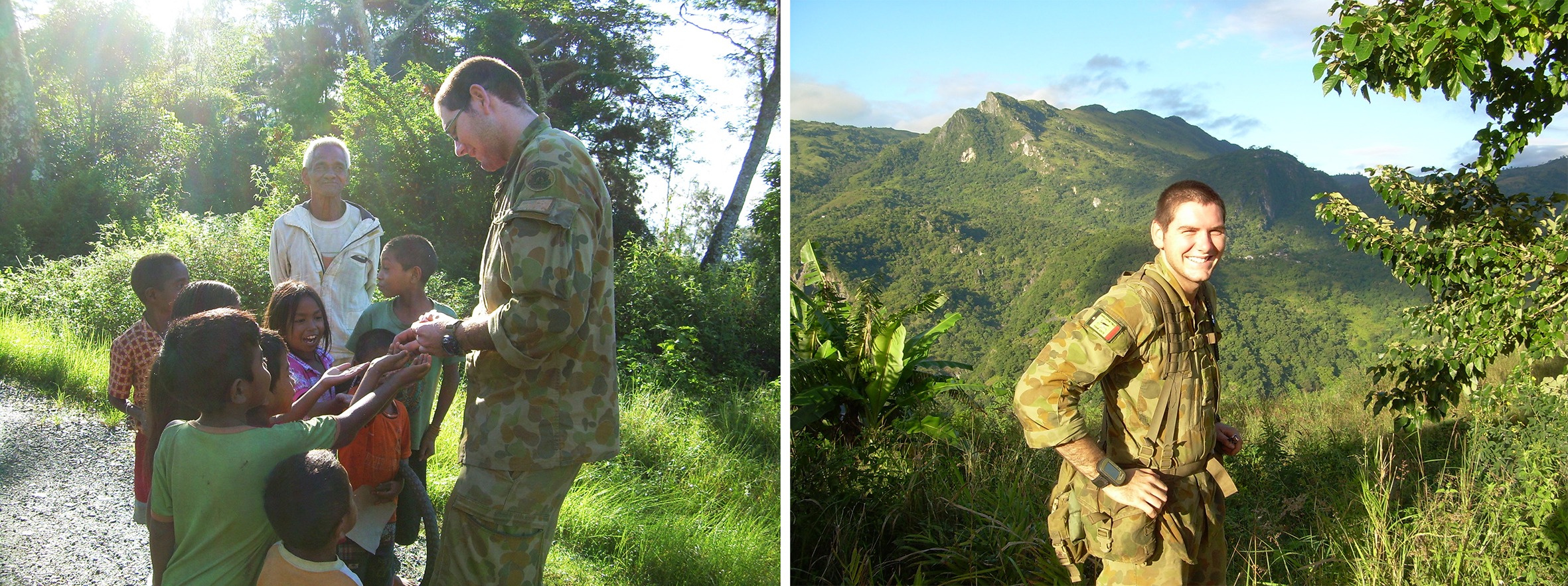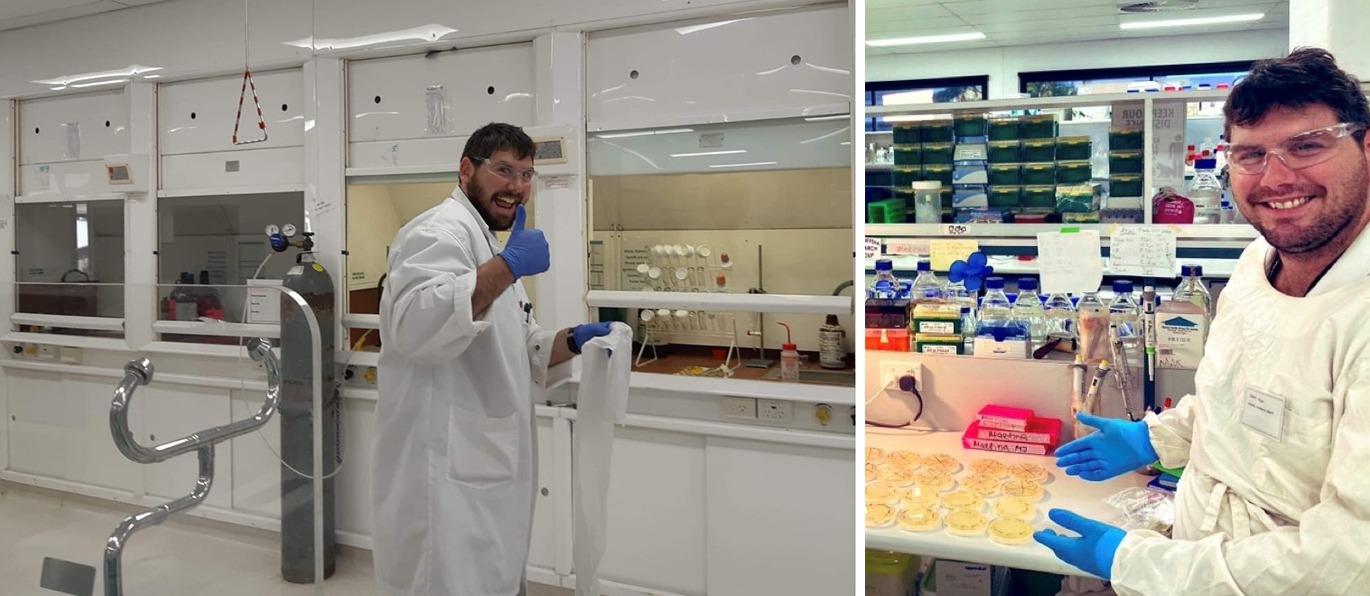

Peacekeeping through aquaculture
June 1, 2021

If you read on our website about work in Afghanistan or Timor Leste, you would expect it to be around agricultural projects underway there. In this blog, we hear from David Heyne, a student at the University of the Sunshine Coast, who was in both those countries as an infantryman of the Australian army. He now finds himself working in agricultural projects focused in other countries and in work in which he never expected to find himself. Part of this has been supporting the analytical chemistry of ACIAR projects focused on seaweeds in the Pacific. Measuring fibre content in the edible seaweed of Samoa is a long way from peacekeeping in developing countries and David takes pride in the impact of his work at home and overseas. And with the strong link between food security and peace, David is continuing his peacekeeping role – through agriculture.
It’s fantastic to work so directly with a product that, when scaled-up in production, has the potential to help a key industry of Gympie, the town I now call home. Beef cattle, dairy, and other livestock rank among the largest industries in Gympie and I enjoy knowing I can provide a value-adding product to the market to assist farmers and my community. My Honours project at the University of the Sunshine Coast (USC) and working with the USC are helping develop a burgeoning aquaculture industry with the potential to directly benefit a range of agricultural sectors. I’m passionate about my contributions to agriculture, but this wasn’t always the case. As a child I thought the closest to farming I would ever come was driving by the cane fields of Far North Queensland, but a range of careers has led me to contributing much more.
Ever since I was little, I’d wanted to be a soldier and following year twelve I enlisted in the Australian Regular Army where I was subsequently deployed to East Timor, Afghanistan and relief efforts following the 2011 Queensland floods. Following six years in Defence I decided to pursue commercial diving which saw me absent from home more often than the Army had necessitated. Other jobs included working as a private security contractor in Afghanistan, an assistant to a funeral director and a shelf-stacker at Coles. My wife eventually convinced me that tertiary education would be a good fit despite having sworn as a 17-year-old I would never be associated something ‘so elitist’ (as I’d remarked in school); as often happens my wife was right, and I was enthralled by academia (which was void of elitism but rich in opportunity).

Despite enjoying my studies, I, like many veterans, sometimes struggled to adapt to civilian life. I learned to accept that people are multi-faceted and that despite ascribing our worth to a particular identity we are more than neatly fits into a box. Consolidating my history and hard-won lessons left me with the realisation that while I’m no longer a soldier, I’ll never quite be a civilian, but I can still make significant contributions to society. I also learnt that the term ‘transition’ refers to a much longer process than simply discharging and finding that first job, but having patience with yourself (and any quirks you may have picked up during service life) and keeping in touch with close mates will guide you toward success.
During my transition (a six-year process) Dr Peter Brooks helped me realise a dormant passion for chemistry. This interest led to a research project with Dr Nicholas Paul, a seaweed researcher with key insight into commercial applications of the red seaweed Asparagopsis taxiformis and I’ve been engaged as an analytical chemist by USCs Seaweed Research Group since. Those intimate with the beef and dairy industries are likely familiar with this seaweed which when fed to cattle mitigates their methane emissions as well as improves weight-gain.

Given the anti-methanogenic effects of Asparagopsis, I can be proud that I’m making a crucial Australian industry more sustainable and more attractive for consumers. Asparagopsis interest exceeds Australian shores however, and with a global interest, scaling up an aquaculture industry is inevitable. I’ve also supported ACIAR seaweed projects as an analytical chemist and, despite mine being a small role, I’m proud to have contributed to a program which improves the livelihoods and food security of our Pacific neighbours.
It’s fantastic to know that in some small way I’m helping my community and potentially assisting in the creation of a new industry with opportunities for employment around the world. To know ‘the green’ is behind me but I can still improve the livelihoods of the global community is a comforting thought, and to think it’s through an agri- and aquacultural means is an unexpected throwback to the cane fields I was surrounded by in my youth.




 0
0